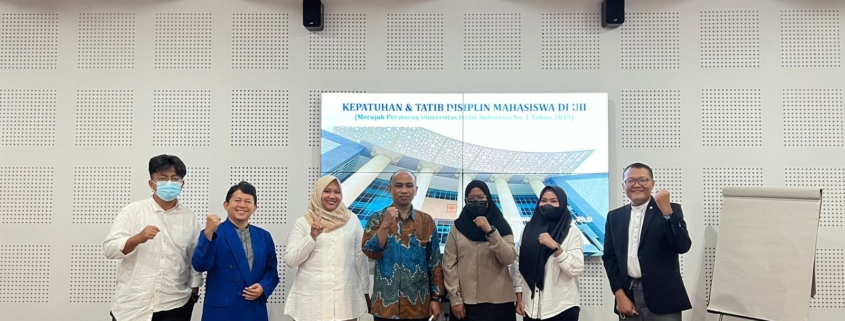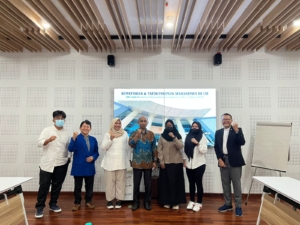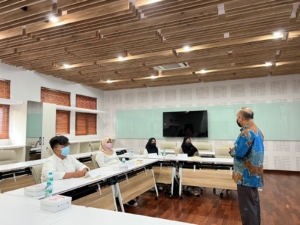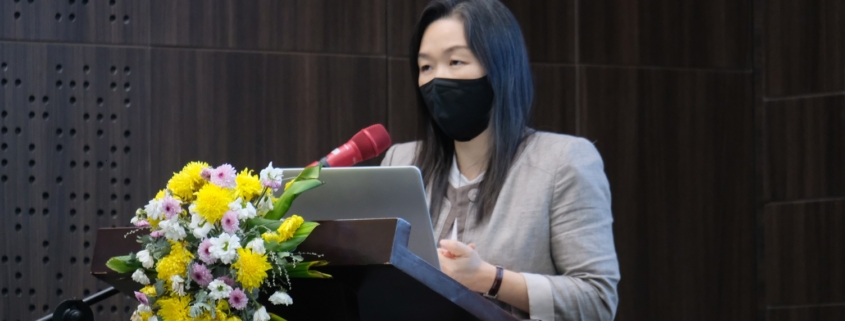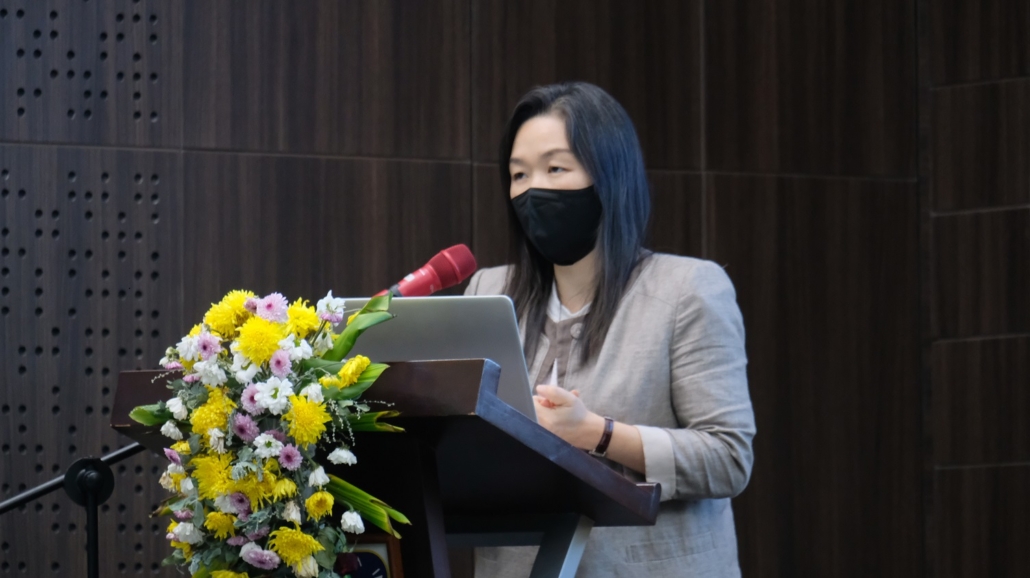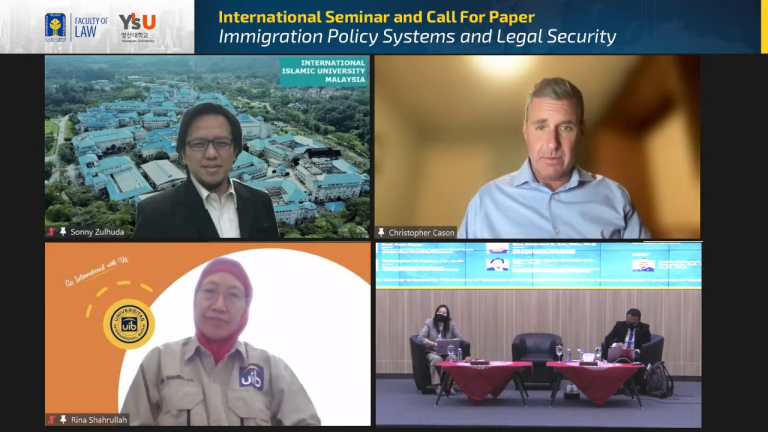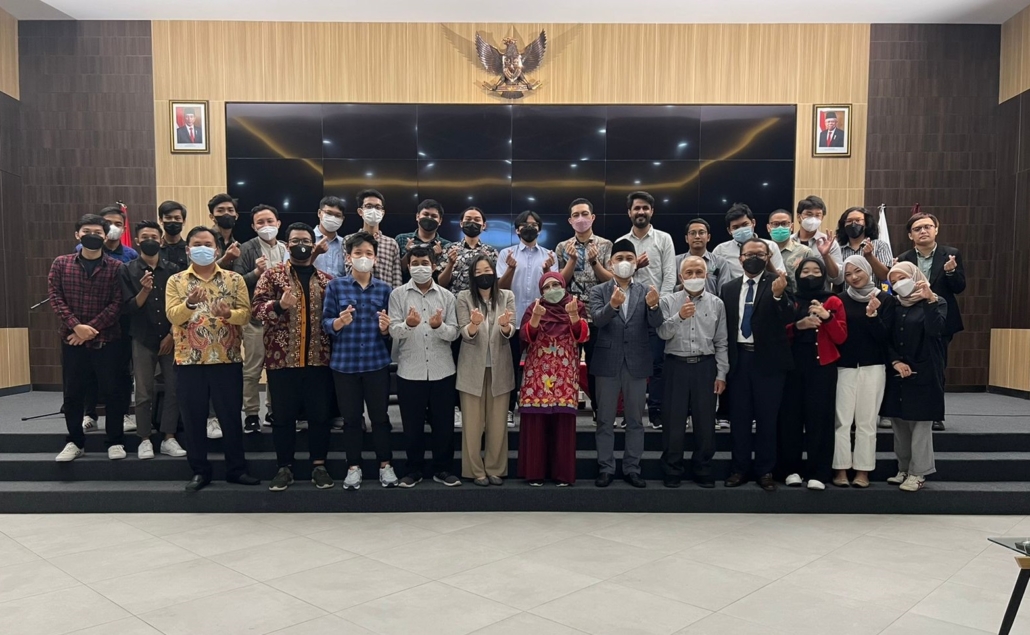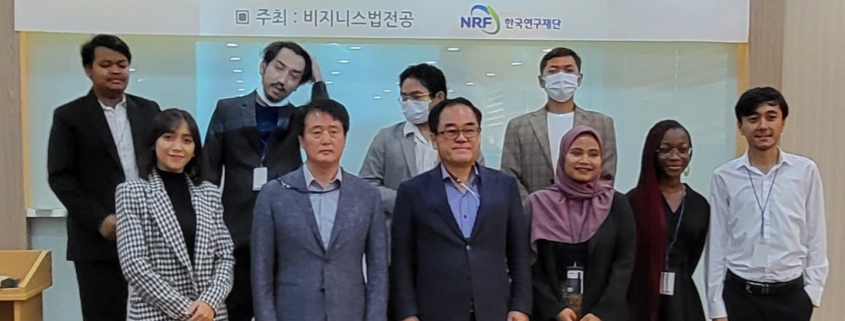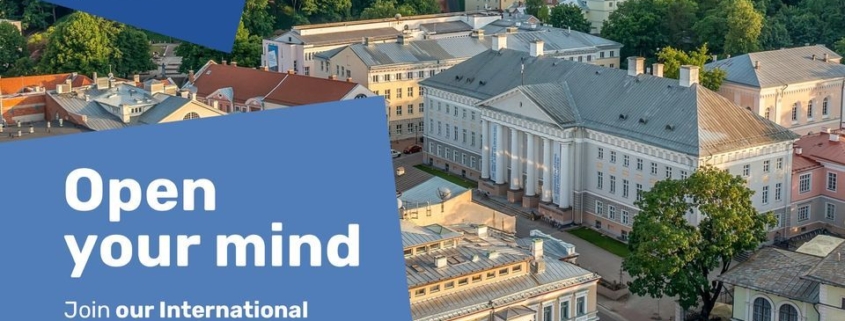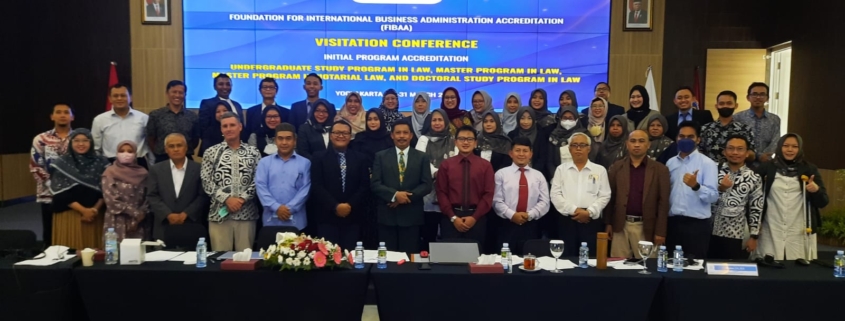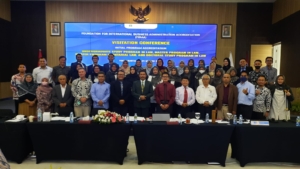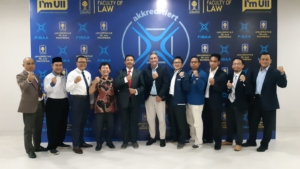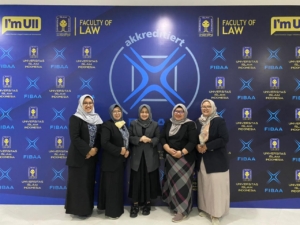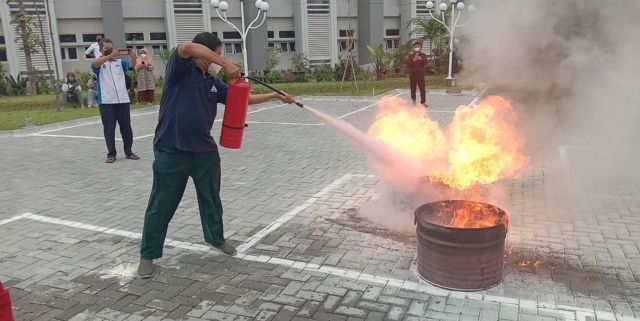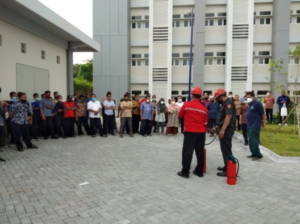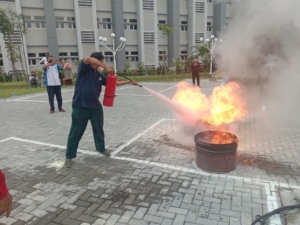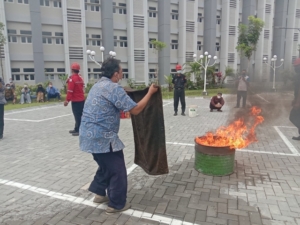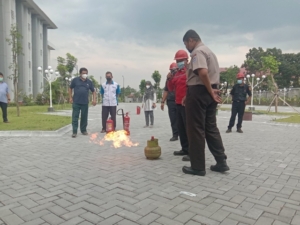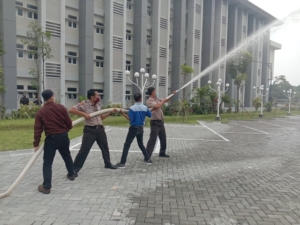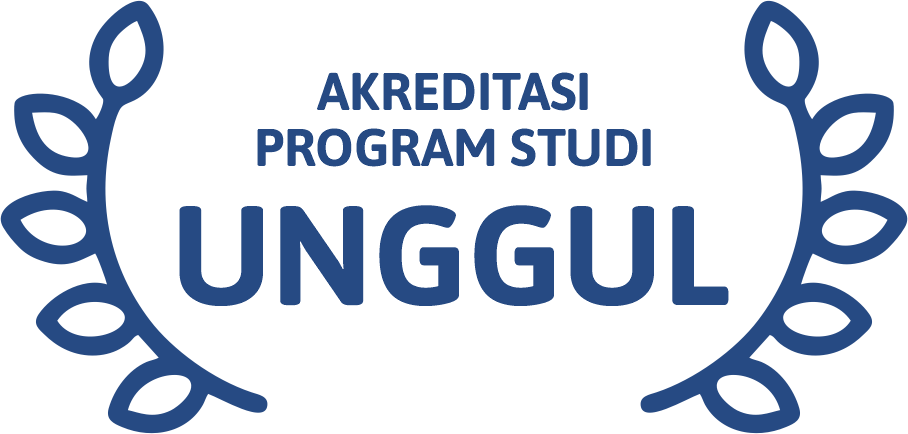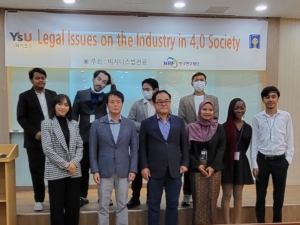
[KALIURANG]; Faculty of Law, Universitas Islam Indonesia collaboration with Youngsan University held an International Seminar on legal issues in industrial society 4.0 which was held by hybrid, held at Youngsan University Busan Campus and some participants attended via Zoom Meeting ( 20/06).
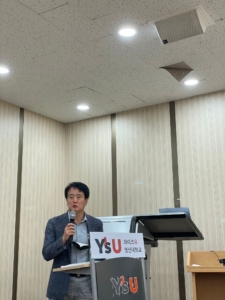
In this Seminar as keynote speech, among others, Prof. Dr. Budi Agus Riswandi, S.H., M. Hum. as Head of Undergraduate Program in Law as well as a Professor at Faculty of Law, Universitas Islam Indonesia. Prof. Park Ji-Hyun, Ph.D. representatives from Youngsan University, Dodik Setiawan Nur Heriyanto, S.H., M.H., LL.M., Ph.D. as Secretary of International Undergraduated Program in Law, Faculty of Law, Universitas Islam Indonesia and then continued by Anisa Rizky Anggalia, S.H., M.H., LL.M. from Faculty of Law, Universitas Islam Indonesia, and the last one is Prof. Lee from Busan Immigration Officer. On this occasion, each speaker presented his material in the form of Intellectual Property Rights, Immigration Systems, and Personal Data Protection.
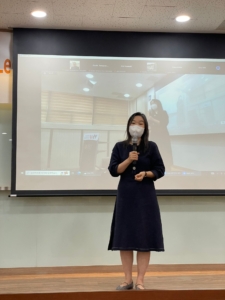
In this opportunity, Prof. Dr. Budi Agus Riswandi, S.H., M.Hum, who was present online through Zoom Meeting said that Faculty of Law, Universitas Islam Indonesia really appreciated the joint implementation of this international seminar. Prof. Budi hopes this activity could take place sustainably and the involvement of students as panelists is the best experience and may be adopted in Faculty of Law, Universitas Islam Indonesia.
Similarly, Head of Undergraduate Program in Law, Secretary of International Undergraduate Program in Law, Faculty of Law, Universitas Islam Indonesia also attended this international seminar online. “This international seminar is entirely funded by Youngsan University and this is the implementation of international cooperation that has been going on in harmony both between Universitas Islam Indonesia and Youngsan University.” said Dodik
The international seminar held this time presented panelists, most of whom came from dual degree program students and credit transfer from International Undergraduate Program in Law Faculty of Law, Universitas Islam Indonesia at Youngsan University.
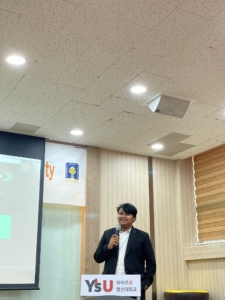
Students participants in the double degree and credit transfer program are Yuwan Zaghlul Ismail, Kurniawan Sutrisno Hadi, Veni Nur Setyaningsih, Muhammad Sulhan, and Muhammad Rhayhan Zidane.
The participants of this international seminar were dominated by foreign students, especially students from Faculty of Law, Universitas Islam Indonesia. This international seminar went well and the participants took an active role in the discussion session.
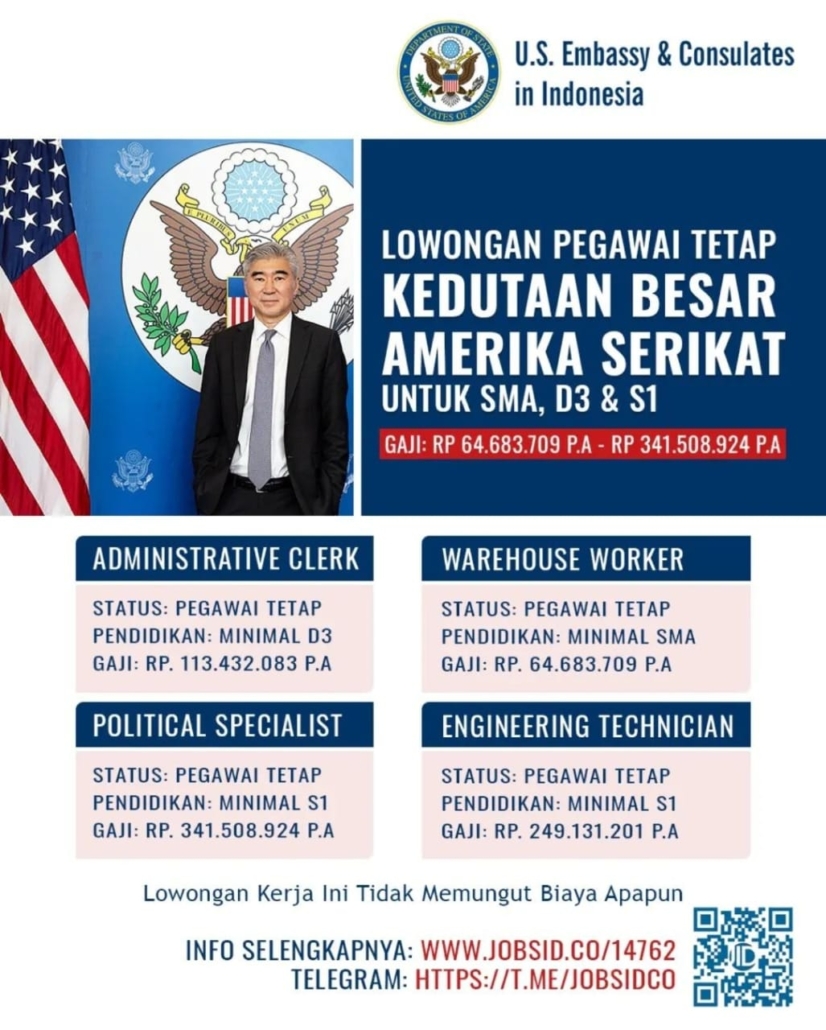

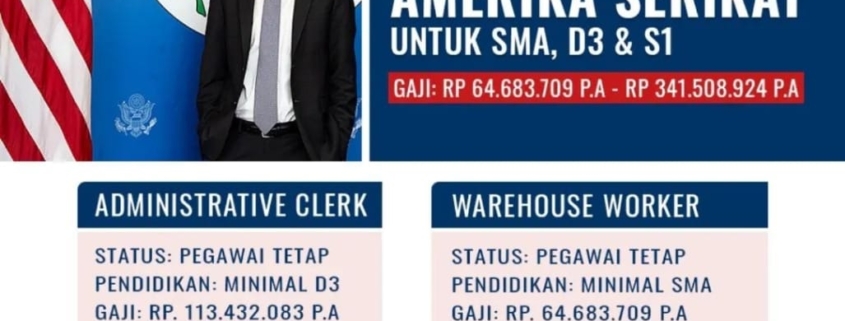
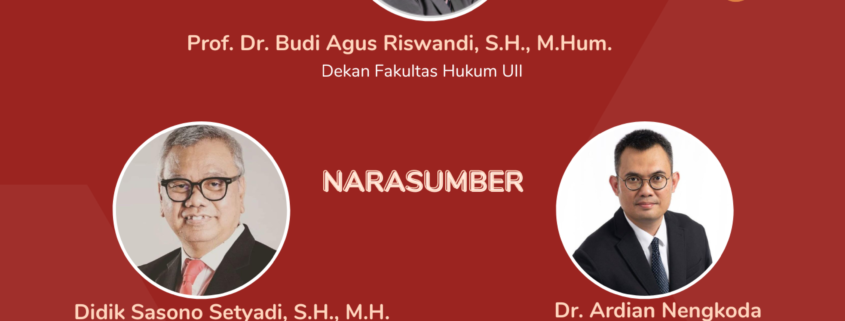
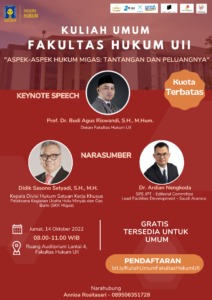
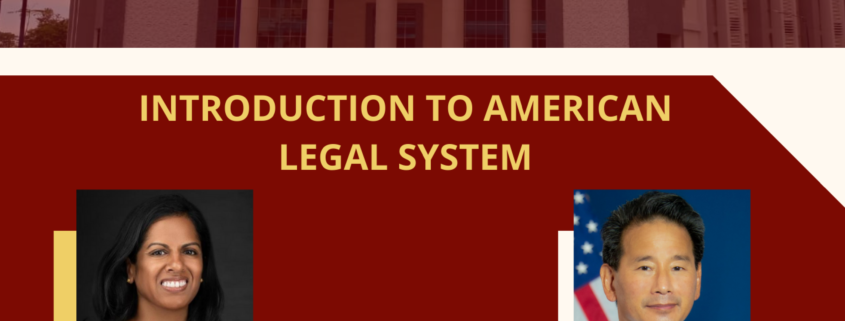
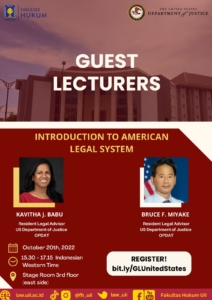
 [GENERAL INVITATION]
[GENERAL INVITATION] Day/Date : Thursday, October 20, 2022
Day/Date : Thursday, October 20, 2022 Time : 15.30-17.15 WIB
Time : 15.30-17.15 WIB Room: Stage Room 3rd Floor (East Side)
Room: Stage Room 3rd Floor (East Side) Speaker – Lecturer :
Speaker – Lecturer :

